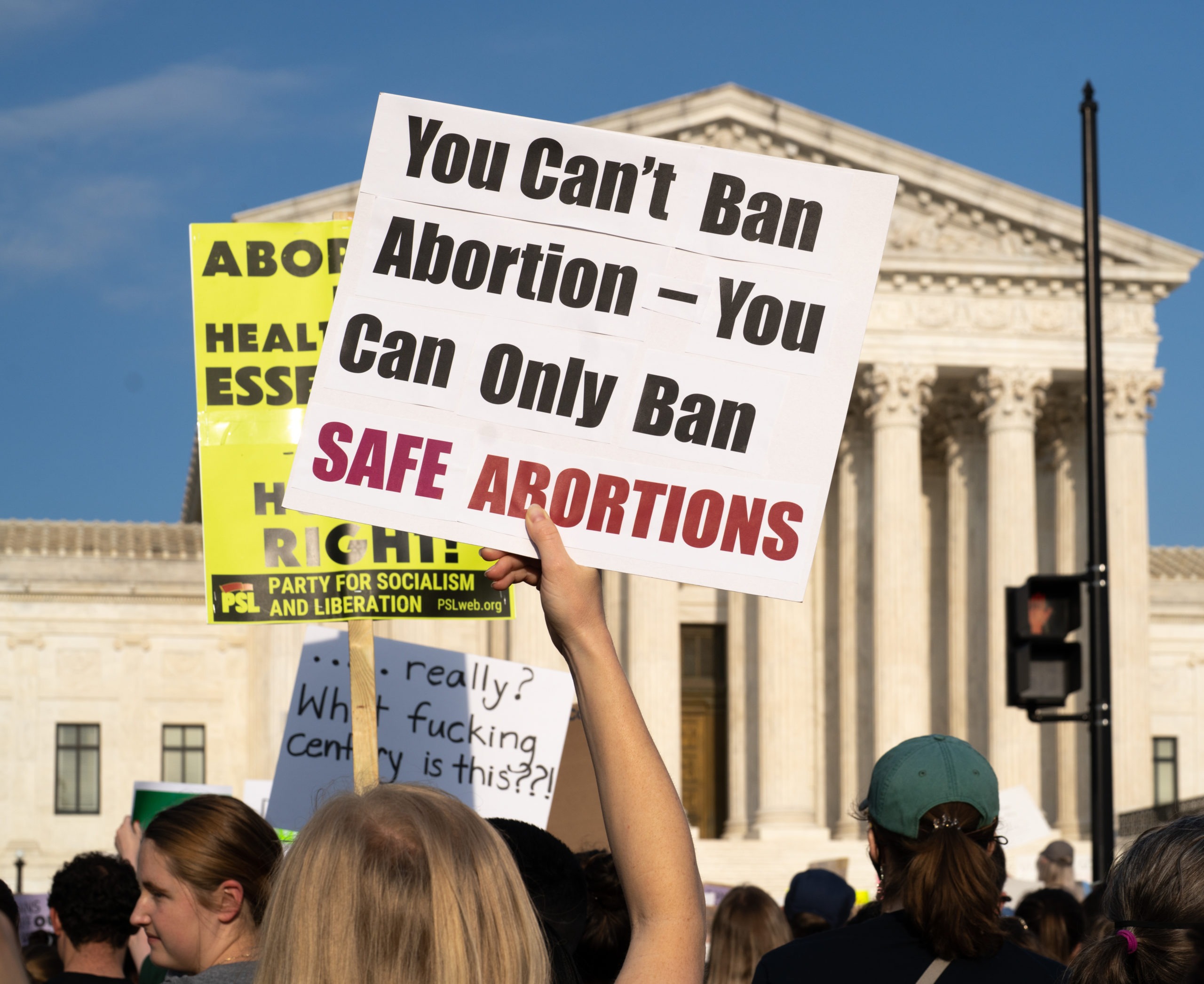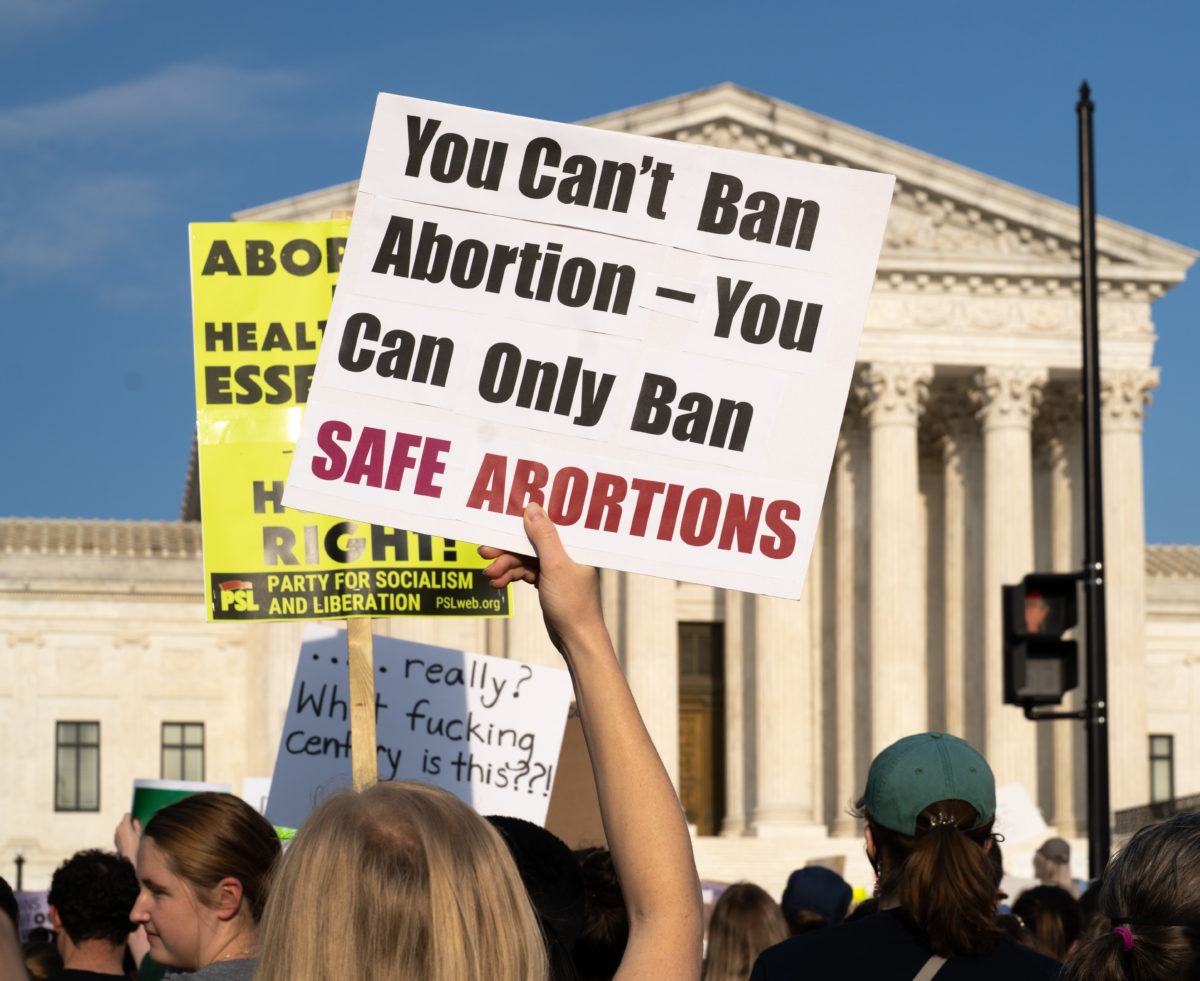Newsletter
Here’s How You Can Help People After Roe
Resources from organizations that have spent decades helping people access abortions and defending people who are criminalized for their pregnancy outcomes.


Here’s How You Can Help People After Roe
by Meg O’Connor
The Supreme Court decision to overturn Roe v. Wade will make it nearly impossible for people in many states to access abortion. The ruling will force people to have children against their will and thrust many more people into the criminal legal system.
But there are ways you can help.
In this newsletter, we have compiled a list of resources — and do’s and don’t’s — from organizations that have spent decades helping people access abortions and defending people who are criminalized for their pregnancy outcomes.
“You can’t stop abortion,” said Laurie Bertram Roberts, executive director of the Yellowhammer Fund, an abortion fund and reproductive justice organization that assists people in the Deep South. “You can’t stop people from being pregnant and not wanting to be pregnant. That’s what history shows us. ”
Without Roe, at least half of the states in this country are likely to ban abortion almost entirely or in part. Abortion will become inaccessible for large swaths of people in the South and Midwest. People in those states will be left to either self-manage an abortion illegally at home by purchasing abortion pills online, or travel long distances to obtain an abortion in a state where it is legal.
Such travel often requires people to take time off work and arrange childcare and lodging. The time and expense are prohibitive for many people, and the abortion itself can cost hundreds or even thousands of dollars and is often not covered by insurance. The demand at abortion clinics in neighboring states will increase, creating long wait times that will make it more difficult for both locals and travelers to receive timely care. This in turn can make it more expensive — and in some cases, functionally impossible — to get an abortion.
These restrictions will impact marginalized communities the most. People of color, indigenous people, trans people, LGBTQ people, undocumented people, young people, people who live in rural areas, and poor people will be hardest hit by the fall of Roe. They already have been most impacted by the myriad of abortion restrictions states enacted while Roe was still in place.
Maternal mortality rates, which are already abysmal in the United States, are worse for women of color. People denied abortion are more likely to become trapped in cycles of poverty, as the Turnaway study, a longitudinal study by the University of California San Francisco, has shown. And people will be forced to have children against their will in a country with no paid parental leave, right to healthcare, or guaranteed childcare. Now, people could end up facing criminal consequences as well.
“We know without a doubt more folks, in particular folks who are already targeted for criminalization and surveillance, are going to be punished and thrust into the criminal legal system,” said Dr. Jamila Perritt, president and CEO of Physicians for Reproductive Health. “People will be more likely to be thrust into poverty. The children they are already parenting are more likely to have challenges moving forward. People will be more likely to be tied to abusive relationships.”
The harm will be immense, but there are ways to help.
“The most important message to convey is that every state in the country has abortion funds that will provide resources to folks to get to a place to access an abortion if they need one,” said Dana Sussman, acting executive director of the National Advocates for Pregnant Women, a legal organization that defends the rights of pregnant people from criminalization. “There is a robust network of abortion funds around the country that provide forms of support like travel, accommodations, childcare.”
Do
- Support abortion funds and independent clinics. Abortion funds directly connect people with abortion care and help people pay for that care. They also assist people with the travel, lodging, and childcare that can be necessary to obtain an abortion. Here is a list of abortion funds across the country from the National Network of Abortion Funds.
- Volunteer for an abortion fund. Abortion funds need financial support, but they also need more people-power to meet the increased demand they are expected to get.
- Know your rights and share accurate information on abortion in your state with your network.
- Know the hotline for legal help from If/When/How. Yveka Pierre, senior litigation counsel for the nonprofit, reproductive-focused legal aid network If/When/How, told The Appeal, people can use the helpline to “speak to an attorney, they can ask questions about what is legal, what is not, what laws are currently in effect” and more.
- Practice good digital privacy and share best practices with your network.
- Learn how to self-manage an abortion.
- Know the M+A hotline for self-managed abortion and talk to a medical professional.
- Bookmark resources to help people find abortions, like the geographic search tool ineedana.com.
- Support If/When/How’s legal defense fund to cover bail and legal support for people who are criminalized for their pregnancy outcomes.
- Share your abortion stories. Destigmatize abortion with your friends, family, and social networks.
- Get politically involved. “Get your friends together and schedule an appointment with your local district attorney,” said Yellowhammer’s Bertram Roberts. “Talk to them and see if they would privately or publicly pledge not to prosecute people for their pregnancy outcomes.”
Don’t
- Don’t report people for their pregnancy outcomes. As Dr. Perritt put it, “Stop calling police on your patients.” NAPW has a detailed guide for healthcare providers, child welfare workers, and law enforcement, among others, on ways to combat the criminalization of pregnancy outcomes and learn what is and isn’t required under the law.
- Don’t funnel all your energy to supporting Planned Parenthood. Abortion funds directly connect people with abortion care they wouldn’t otherwise be able to obtain. Planned Parenthood has a much broader mandate (it lobbies politicians, runs educational campaigns, and provides other health services) and is already well funded.
- Don’t exclusively support abortion funds in states where abortion access will be restricted. Abortion funds in states where abortion remains legal will need help to meet the increased demand for abortion in their states.
- Don’t exclusively support abortion funds in states where abortion access won’t be restricted, either. “The funds in the South are still gonna be here and helping people get where they need to go. And we’re gonna help people who are forced to parent,” said Bertram Roberts.
- Don’t ignore existing networks of care to set up “auntie networks”—unverified networks of people online offering to help provide lodging and other assistance to people seeking abortions. This needlessly (and poorly) attempts to replicate a system that is already in place, and does so in a dangerous and unsecured way. Abortion funds vet their volunteers. People against abortion could easily join unvetted online networks and do harm.
- Don’t call abortion networks the “Underground Railroad.” It’s deeply offensive.
- Don’t stockpile abortion pills. This would make it harder for people who really need abortion pills to get them.
- Don’t invoke coat hanger imagery. Science and medicine has come a long way. Coat hanger imagery stigmatizes self-managed abortions, which are largely safe and can be done by taking oral medication.
Thank you for reading this early edition of our newsletter. Please contact the reporter, meg.oconnor@theappeal.org, directly if you have feedback on this list.
